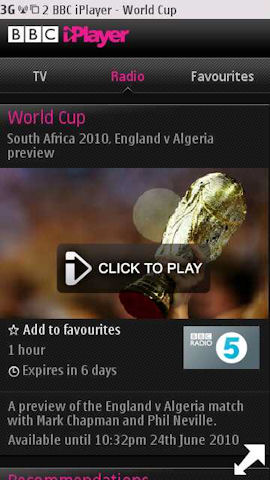 Inside the confines of the BBC, this is a very important conclusion – part of the public value test for the BBC is that their size does not distort a market. Having a report that says “everything is going free anyway, no matter what the BBC does” means they can release a slew of applications, mobile websites and content where previously they had to hold back for fear of changing the market.
Inside the confines of the BBC, this is a very important conclusion – part of the public value test for the BBC is that their size does not distort a market. Having a report that says “everything is going free anyway, no matter what the BBC does” means they can release a slew of applications, mobile websites and content where previously they had to hold back for fear of changing the market.
In the larger world, this is still very early days for how information is consumed on mobile devices. There is talk of better browsers, the mythical power of HTML5 to deliver everything you could ever need an a rich multimedia online experience through your browser – and the challenges of making a success in an App Store are documented in countless blogs and editorials.
But there is a place for the application, even if it is just an icon to a fancy RSS reader (the relative success of the Ovi App Wizard highlights this). Mobile Web apps are going to require a lot of user education because they will be seen, in the short term at least, as a bookmark. Add in the fact that native applications will always be needed for more complicated functions, such as word processing or video editing, as well as countless games, apps will continue to have a foothold in a device and in the user's mind. It’s far easier to just get an app for their favourite news channel than have an app, mobile web apps, a browser with bookmarks, and a mix of shortcut icons and launchers on your desktop.
Can the two solutions sit alongside each other? And even if they will, will it really be free? Someone has to be earning money somewhere.
What is true in the short term is that we’ll see more from the BBC, and the first port of call would be for more iPlayer support over the whole range of Symbian devices. As a recent repeat of Yes Minister illustrated, one would never commission a report without knowing what answer one wanted to hear….
The report is available as a PDF from the BBC Trust.
-- Ewan Spence, July 2010.
